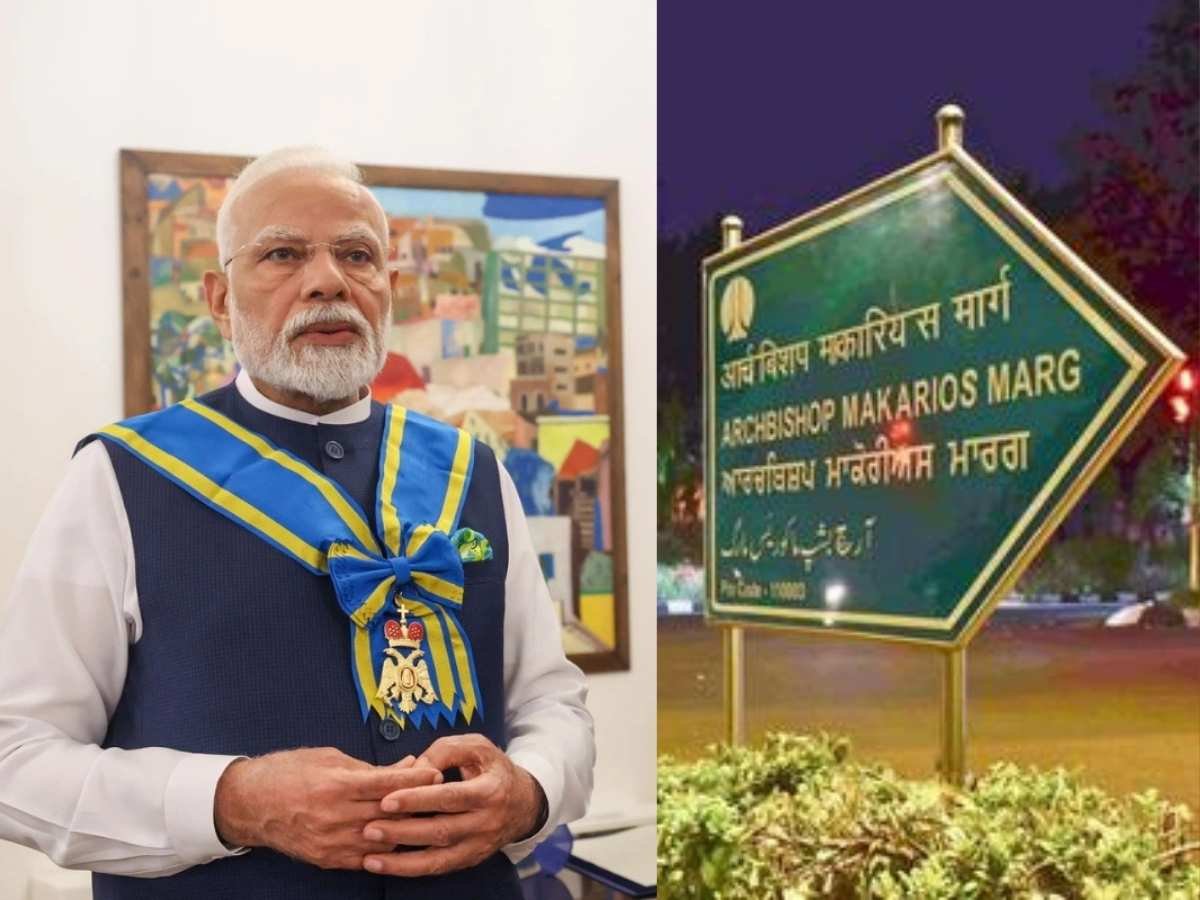On Monday, Prime Minister Narendra Modi was conferred with one of Cyprus’ highest civilian honours the Grand Cross of the Order of Makarios III. While the ceremony took place thousands of kilometres away in Nicosia, it quietly stirred attention in New Delhi particularly towards a little-known street tucked behind Lodhi Road: Archbishop Makarios Marg.
The recognition of Modi not only honoured India-Cyprus bilateral ties but also revived memories of India’s active role in the Non-Aligned Movement (NAM), and how that legacy has left its mark on Delhi’s geography.
Named in the 1980s, Archbishop Makarios Marg was formerly known as Golf Links Road. It was renamed after Makarios III, the first President of Cyprus and a key figure in the island nation’s independence from British colonial rule. As both a religious and political leader, Makarios III served as Archbishop from 1950 to 1977 and remains widely respected as the founding father of modern Cyprus.

According to historian Sohail Hashmi, the road was rechristened following the 1983 NAM Summit hosted in New Delhi. The summit was a significant diplomatic event, attended by global leaders like Fidel Castro, Josip Broz Tito, and Yasser Arafat. In honour of their contributions and alignment with India’s foreign policy vision, roads across the capital were renamed—Gamal Abdel Nasser Marg, Ho Chi Minh Marg, Tito Marg, and, notably, Makarios Marg.
“He was a freedom fighter and central to Cyprus’ struggle for independence,” Hashmi recalled, noting that the road naming was part of India’s larger symbolic commitment to global decolonisation.
Political scientist Anuradha Chenoy, former dean at Jawaharlal Nehru University (JNU), described the naming trend as reflective of a time when India took a leading role in reimagining its diplomatic presence. “It was the period when the Shanti Path diplomatic enclave was being developed, and India was asserting its identity in the global south,” Chenoy said. “Naming roads after leaders like Makarios was both symbolic and strategic.”
During Monday’s award ceremony in Cyprus, PM Modi expressed his gratitude to the Cypriot President and people, dedicating the honour to the enduring friendship between the two nations. His statement not only acknowledged the shared history but also hinted at India’s enduring respect for post-colonial solidarity.
Adding a personal touch to the historical context, Congress leader Jairam Ramesh highlighted on social media that Makarios visited India in 1962 as a state guest of Prime Minister Jawaharlal Nehru. “When Pandit Nehru passed away in 1964, Cyprus observed a national day of mourning,” he posted on X. Ramesh also reminded readers that the Delhi road named after Makarios splits the archbishop’s name across two parts on the signboard a small but curious detail from the past.
Today, Archbishop Makarios Marg may be a quiet stretch of trees and diplomatic bungalows, but it is also a living reminder of India’s global role in promoting non-alignment, peace, and shared sovereignty.
As Modi’s Cyprus honour makes headlines, it also offers a chance to revisit the layers of India’s diplomatic history etched not only in archives but also into the very roads of its capital city.



